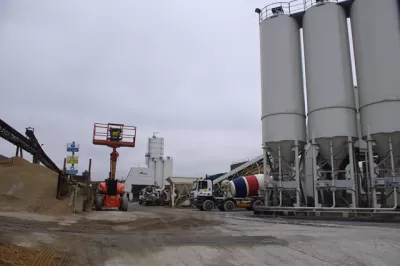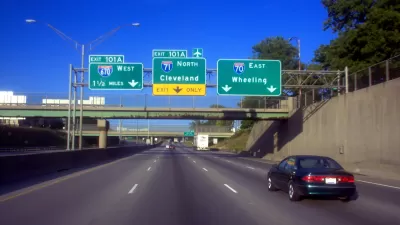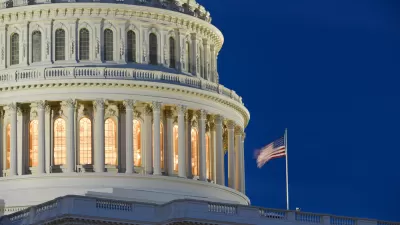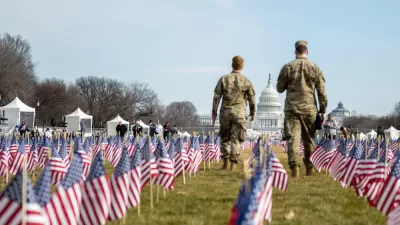The $500 billion five-year transportation bill making its way through the House is only part of the package.

House Democrats have unveiled a $1.5 trillion infrastructure bill called the Moving Forward Act (H.R. 2), which includes the $500 million included in the Invest in America five-year transportation bill that passed out of a House committee, with partisan support, earlier this week.
Kim Slowey provides details on the Moving Forward Act:
The bill, an expanded version of the Moving Forward Act proposed earlier this year, would also provide: $300 billion for structurally deficient bridges; $100 billion for facility upgrades at high-poverty schools; $100 billion for affordable housing infrastructure; $100 billion in broadband internet; $40 billion for wastewater infrastructure; $70 billion for the electric grid for more renewable energy and upgrades; $30 billion for hospitals and other healthcare infrastructure; and $3 billion for "shovel-ready" Great Lakes, coastal and marine projects.
With an infrastructure proposal like this on the table in Congress, it's hard not to recall the ambitious promises made by the Trump administration, both before and after being elected to office, for a major federal investment in the nation's infrastructure. After numerous examples of "Infrastructure Week" and even a short-lived moment of bipartisan cooperation, the Democrats in the House are now taking up this mantle during an election year and a historic economic crisis.
FULL STORY: House Democrats introduce $1.5T infrastructure bill

Maui's Vacation Rental Debate Turns Ugly
Verbal attacks, misinformation campaigns and fistfights plague a high-stakes debate to convert thousands of vacation rentals into long-term housing.

Planetizen Federal Action Tracker
A weekly monitor of how Trump’s orders and actions are impacting planners and planning in America.

San Francisco Suspends Traffic Calming Amidst Record Deaths
Citing “a challenging fiscal landscape,” the city will cease the program on the heels of 42 traffic deaths, including 24 pedestrians.

Defunct Pittsburgh Power Plant to Become Residential Tower
A decommissioned steam heat plant will be redeveloped into almost 100 affordable housing units.

Trump Prompts Restructuring of Transportation Research Board in “Unprecedented Overreach”
The TRB has eliminated more than half of its committees including those focused on climate, equity, and cities.

Amtrak Rolls Out New Orleans to Alabama “Mardi Gras” Train
The new service will operate morning and evening departures between Mobile and New Orleans.
Urban Design for Planners 1: Software Tools
This six-course series explores essential urban design concepts using open source software and equips planners with the tools they need to participate fully in the urban design process.
Planning for Universal Design
Learn the tools for implementing Universal Design in planning regulations.
Heyer Gruel & Associates PA
JM Goldson LLC
Custer County Colorado
City of Camden Redevelopment Agency
City of Astoria
Transportation Research & Education Center (TREC) at Portland State University
Jefferson Parish Government
Camden Redevelopment Agency
City of Claremont





























